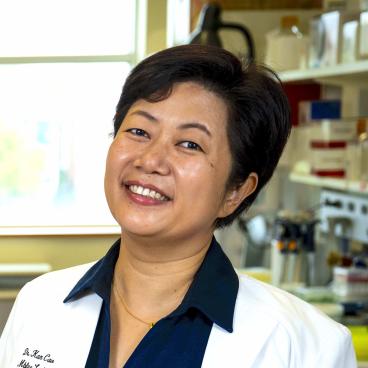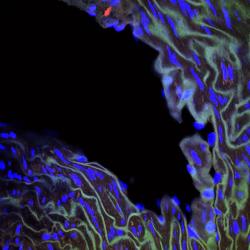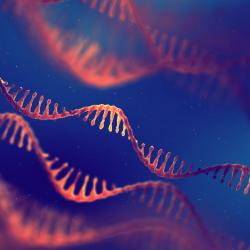The Genetics and Genomics specialization area provides rigorous training in the molecular and genetic analysis of fundamental molecular and cellular processes. As the broadest specialization in the department, Genetics and Genomics encompasses diverse, current research problems in a wide range of systems. Faculty in this area use state-of-the-art approaches such as genetics of model organisms, bioinformatics, computational biology and functional genomics to study cellular development, signal transduction, regulation of gene expression, microbial pathogenesis, and the evolutionary origin of higher organisms.
This specialization area is interdepartmental, including faculty members from CBMG and the Departments of Computer Science, Entomology, and Animal and Avian Sciences; and the Institute for Bioscience and Biotechnology Research at the University of Maryland, College Park, and the Institute for Genome Sciences at the University of Maryland School of Medicine. The multidisciplinary expertise of our faculty greatly facilitates collaborative studies that integrate diverse aspects of investigation from computation to the genetic manipulation of model organisms.
Graduate Programs
- Students with interests in Molecular Genetics should apply to the Biological Sciences (BISI) Graduate Program and, specifically, to the Molecular and Cellular Biology (MOCB) concentration area within that program.
- Students interested in a more computational approach may choose to apply to the Computational Biology, Bioinformatics, and Genomics (CBBG) concentration area within BISI.
- All Ph.D. students in these concentration areas receive a broad background in molecular biology and molecular genetics, plus advanced training in their particular research area.
- Students are expected to develop not only technical expertise, but also the critical thinking skills necessary for a rewarding career as an independent scientist.
- All first year Ph.D. students enroll in core courses, participate in lab rotations, and attend seminars. An advisory committee, in consultation with the research advisor, then helps each student choose the advanced courses that are appropriate for his/her research plans and career objectives.
- In addition to formal courses, the program provides opportunities for critical discussion of the scientific literature through seminar courses and journal clubs.
- The department also organizes monthly meetings in different specialization areas, such as:
- GEMS (Genetics with Eukaryotic Model Systems)
- ATRIUM (Arabidopsis thaliana Research Initiative)
- Virology
- MPRI (Maryland Pathogen Research Institute) in which members present and discuss their research in an informal setting.
- Recent Ph.D. graduates have gone on to positions as postdoctoral researchers, faculty members and independent scientists in universities, biotechnology companies and government agencies.
Graduate Courses in Molecular Genetics
- CBMG688D: Cell Biology I, Structure and Function
- CBMG688E: Cell Biology II, Signal Transduction
- CBMG688F: Genetics I, Gene Expression
- CBMG688I: Genetics II
- CBMG688P: Plant Development and Physiology I
- CBMG688R: Plant Development and Physiology II
- CBMG688L: Microbial Pathogenesis
- CBMG688Y: Bioinformatics and Genomics
- CBMG688B: Bioethics
- Current Journal Clubs: Genetics of Eukaryotic Model Systems ; Bioinformatics and Computational Biology





















